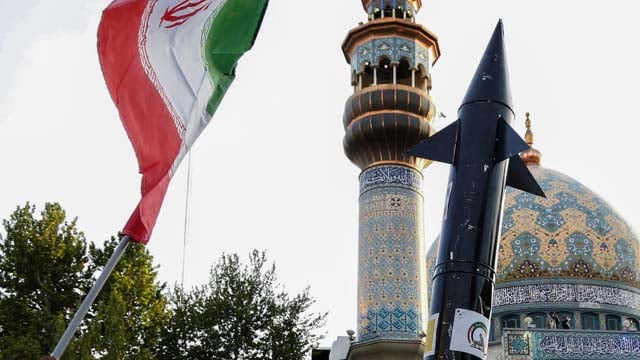Israel’s apparent strike on Iran was deliberately limited in scope but sent a clear warning to the country’s leadership about Israeli abilities to strike at sensitive targets.
Tehran refuses to recognise Israel, and for decades the two countries have waged a shadow war marked by covert Israeli operations inside Iran, and Iranian backing for anti-Israel militant groups including Hamas in Gaza and Hezbollah in Lebanon.
But while the surge in tensions over the past weeks has calmed for now, the shadow war has entered a new phase, carrying more than ever the risk of open conflict between the foes, analysts say.
The current escalation comes against the background of Hamas’s October 7 attack on Israel followed by the Israeli bombing campaign in the Gaza Strip.
It began when Israel was blamed for carrying out an air strike on April 1 against Iran’s consulate in Damascus, killing seven Iranian officials from the Revolutionary Guards.
Iran responded with its first-ever direct attack on Israel, involving hundreds of drones and missiles, though almost all were shot down by Israel and its allies.
Amid fears of a major Israeli retaliation to that attack, which could itself provoke another Iranian response, Israel instead chose a much more limited option in the face of US pressure.বিস্তারিত


